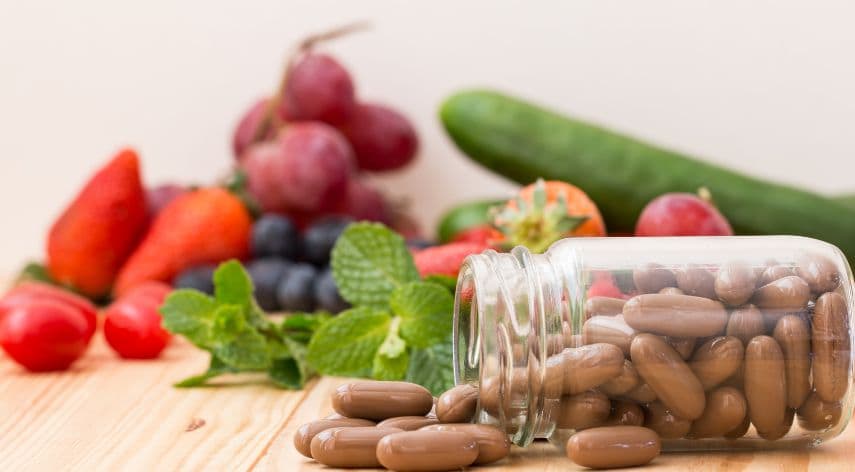Why Vitamin Supplementation is So Important

With the COVID19 pandemic raging on, it’s more important than ever to make sure our immune systems are as strong as possible. Our health is our best defense against the virus, and one of the best ways to keep our bodies healthy is by getting the recommended daily allowance of vitamins and minerals.
Often, we don’t get enough vitamins and minerals from the food we eat. This is especially true if we’re not eating a balanced diet or if we’re under stress. That’s why it’s so important to take a vitamin supplement to make up for what we’re missing.
In this article, we’ll discuss why vitamin supplementation is so important for our health. We’ll also cover the different types of vitamins and minerals, and how they can help us fight off disease, maintain our energy levels, and keep our bodies functioning at their best.
Table of Contents
ToggleSo, why is vitamin supplementation so important? Let’s take a look.
Vitamins are essential nutrients that our bodies need to function properly. They help us maintain our health and prevent disease. Vitamins play a vital role in many of our body’s processes, including cell growth and repair, metabolism, immune function, and more.
There are 13 essential vitamins: A, B1 (thiamine), B2 (riboflavin), B3 (niacin), B6, B9 (folate), B12, C, D, E, and K. These vitamins are found in a variety of foods, including meat, poultry, fish, eggs, dairy products, and certain fruits and vegetables.
Most people can get the vitamins they need by eating a balanced diet that includes a variety of foods from all food groups. However, some people may need to take a vitamin supplement to ensure they’re getting enough of these essential nutrients.
For example, pregnant women and women of childbearing age often need to take a vitamin supplement that contains folic acid, as this nutrient helps prevent certain birth defects. Older adults, people with dark skin, and those who don’t get enough sun exposure may need to take a vitamin D supplement.
Vitamin supplementation is also important for people with certain medical conditions or who are taking certain medications. For example, people with Crohn’s disease or ulcerative colitis may need to take a vitamin B12 supplement, as these conditions can cause vitamin B12 deficiency. People with celiac disease may need to take a vitamin D supplement, as this condition can interfere with the absorption of this nutrient.
In general, it’s best to get vitamins and minerals from food sources, as this helps our bodies absorb them more efficiently. However, vitamin supplements can be a convenient and effective way to ensure we’re getting enough of these essential nutrients.
How to ensure your vitamins are of the highest quality?
When you buy vitamins, make sure to buy from a reputable source. Check the label to see if the supplement has been tested by an independent organization like USP (United States Pharmacopeia) or NSF International. These organizations test supplements to ensure they meet quality standards.
Also, look for supplements that are certified organic, as this means they’re free of pesticides, herbicides, and other harmful chemicals. And be sure to choose a supplement that’s appropriate for your age, gender, and health needs.
Vitamin supplementation is a simple and effective way to improve our overall health. By getting the recommended daily allowance of vitamins and minerals, we can help our bodies function at their best and prevent disease. So, be sure to talk to your doctor about whether vitamin supplementation is right for you.
Why it’s important to have a balanced diet while taking supplements
While taking supplements is a great way to ensure you’re getting enough of the essential nutrients your body needs, it’s also important to eat a balanced diet. Eating a variety of healthy foods from all food groups will help your body absorb vitamins and minerals more effectively.
Plus, eating a healthy diet has other benefits, like reducing your risk of chronic diseases like heart disease, stroke, and cancer. So, be sure to eat plenty of fruits, vegetables, whole grains, lean protein, and healthy fats as part of a balanced diet. And if you’re taking any supplements, be sure to talk to your doctor about how to best use them in conjunction with a healthy diet.
Recommended For You
Spread the loveHealth screening is a vital part of preventive healthcare which plays a crucial role in the maintenance of
Spread the loveSexual health is an essential aspect of personal well-being. If you’re based in London and need STI testing,
Spread the loveIn today’s fast-paced world, managing your health effectively is more important than ever – especially for those of



